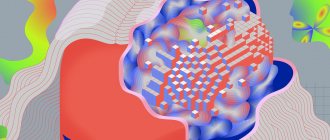Among personality disorders, a special place is occupied by a condition that experts call mild mania. Hypomania is manifested by excessive cheerfulness and energy. Against the background of high spirits, a person feels a surge of physical and mental strength, but at the same time he is overly irritable and even angry.
This disorder differs from mania in the absence of psychotic symptoms such as delusions and hallucinations. Hypomanic states can occur for various reasons, but most often hypomania is explained by the peculiarities of bipolar disorder.
Service price
- HOSPITAL Day hospital5 000
- Day hospital with intensive care8,000
- 24-hour hospital (all inclusive, cost per day) 12,000
- 24-hour hospital (all inclusive, cost per day). Single occupancy24,000
- 24-hour hospital (all inclusive, cost per day). Single occupancy in a superior room 36,000
- Primary family counseling for relatives of patients undergoing inpatient treatment free of charge
- Group psychotherapy for relatives of patients undergoing inpatient treatment free of charge
- Group psychotherapy for 24-hour and day hospital patients free of charge
- Individual post for a hospital patient (if indicated)6,000
Hypomanic state
- elevated mood, accompanied by increased activity, productivity, and shortened sleep. It is an intermediate state between the norm and the manic state - a pathologically elevated mood, leading to gross behavioral disorders.
The hypomanic state resembles the feeling of joy familiar to every person, a general uplift after good news, or a pleasant significant event. Its difference is that it occurs without visible external “positive” events and can last a long time: from several days to several months.
The reasons for the development of hypomanic state are not completely known. Physiologists and doctors know only a few mechanisms for the development of this long-lasting elevated mood: overexcitation of the median subcortical structures, reversible disruption of the exchange of brain neurotransmitters
Causes of hypomania
Photo by Rachel Claire: Pexels
Hypomania is also called a mild, “fun” mental disorder. Why is that? Because there is no delusion, no hallucinations. However, the person becomes too talkative, too energetic and loses concentration. What kind of gift is this and what are the reasons for such an ambiguous state?
Often the causes are a dysfunction or peculiarity of the body systems. These could be diseases of the adrenal glands or thyroid gland. Features of the brain can cause hypomania. This condition can be a reaction to stress and serve as a sign of depression.
And, of course, hypomania can occur in those who abuse energy drinks and other psychostimulants.
How is hypomania treated?
Not all hypomanic conditions require treatment. In some cases, isolation from external stimuli and proper sleep can restore normalcy. The following therapeutic measures are used to treat hypomania:
- Physiotherapy.
- Pharmacotherapy (motor stabilizers, neurometabolic therapy, antipsychotics).
- Diet therapy.
- Biofeedback therapy.
Treatment of a manic state is possible in a hospital
, and at home.
The hypomanic state may itself end with a return to normal mood. In some cases, hypomania develops into a more severe painful disorder - a manic state.
Treatment and prognosis
Untreated hypomania becomes chronic over time, then mental manifestations are joined by symptoms of autonomic dysfunction (hypertensive crises; episodes of palpitations accompanied by fear of death; sudden attacks of trembling, weakness throughout the body, etc.).
With timely diagnosis and treatment, the prognosis for this disease is favorable. Therapy for hypomania is aimed at both stopping the current episode and preventing relapses in the future.
Both medication and psychotherapy are used. In cases where hypomania is not an independent mental illness, but a symptom of another mental or somatic pathology, successful treatment is impossible without appropriate treatment of the underlying disease (correction of thyroid hormone levels in hyperthyroidism, antibacterial therapy for neuroinfections, prescription of antipsychotics for schizophrenia, etc. .).
The Alliance mental health center employs highly qualified psychiatrists and psychotherapists who have the necessary skills and tools for diagnosing and treating hypomania. Many years of experience in this field allows us to provide an individual approach to each case and formulate the most effective treatment and prevention tactics with minimal drug load.
A person in hypomania experiences a surge of strength, increased physical activity, excellent health and mood. The downside of this is the lack of an adequate assessment of the consequences of one’s actions and one’s own capabilities, a craving for various adventures and risks, and neglect of the needs and feelings of one’s loved ones. Therefore, despite the subjective feeling of well-being, hypomania is a painful condition during which a person can cause harm to himself and his family.
Prevalence
This disorder most often occurs in women due to specific character traits and hormonal instability. According to the latest statistics, we can conclude that the female half of the population has 1.5 times more cases of TMD than men. The risk of getting sick increases if a woman is under severe stress or is in the postpartum or premenopausal period. The peak of the disease usually occurs between 20 and 30 years of age, which also makes early diagnosis difficult. By the end of the 20th century, the number of people with MDP reached 1%, and of these, 0.3% had a severe form.
In adolescents, MDP develops unnoticed; the symptoms are mistakenly accepted by others and parents as a manifestation of character (depression, reluctance to communicate with anyone, or, on the contrary, motor and speech agitation, aggressiveness).
Diagnostics
According to ICD-10 criteria, a diagnosis is made if abnormal mood persists for at least four days and at least three of the following symptoms are observed simultaneously.
Diagnostic markers of hypomania are:
- increased activity and physical restlessness;
- talkativeness;
- increased distractibility, problems concentrating;
- excessive sociability and familiarity in communication;
- increased libido;
- reduced need for sleep and rest;
- irresponsibility, reckless behavior.
To determine the exact cause of the disorder, differentiated diagnostics are carried out:
- in case of hormonal imbalance, somatic symptoms are observed (tremor of the limbs, fever, bulging eyes);
- with anorexia, fear of food and weight loss are noticeable;
- When using chemical stimulants, signs of intoxication are noticeable (dilated pupils, tremors of the limbs, other somatic manifestations).
When diagnosing adolescents and children, it is important to pay attention to age-related characteristics.
Etiology
The exact cause of bipolar disorder is unknown. Heredity plays an important role. There is also evidence of dysregulation of serotonin and norepinephrine metabolism.
Psychosocial factors may also be involved. Stressful life events may also play a role in the development of symptoms and subsequent relapses, although their precise role in pathogenesis is not fully understood.
Certain medications may trigger relapse in some patients with bipolar disorder; such drugs include
- Sympathomimetics (eg, cocaine, amphetamines)
- Alcohol
- Certain antidepressants (eg, tricyclics, MAOIs)
Lyrical digression or introduction...
And most people, not so much growing up as they grow older over the years, get used to giving up their aspirations from childhood, obediently convincing themselves to believe in the truth of someone else’s negative experience.
Having been imbued with the poison of the “keep and not let go” principle, having become its ardent supporters, they now avidly profess it as an absolute truth - and, like a plague, they spread the tactics of caution in feelings, dreams and actions to others: to children, to grandchildren, to your distant ones and your neighbors.
A term has even emerged to justify such cowardly tactics: reasonable caution.
Indeed, what could be simpler than banning it? And who will punish for this if everyone around them is like that?
The result is a complete collective irresponsibility that does not suit anyone and the practice of looking at any situation with leaden eyes with the usual pointing a finger at the neighbor: let him answer!
But while the majority of humanity pretends to live, having a hard time having fun, smoking heavily, surfing the Internet and racking their brains: how to survive at the expense of their neighbor? - next to them, at the same time and on the same planet as him, lives a category of people of a completely different “cut”, in whom the child’s ability to dream and desire does not atrophy to deep gray hairs.
These are people woven from a childish admiration for the world and an equally childish unconditional conviction: miracles exist, and are not possible. And there is no such miracle that would not happen if you want it.
It doesn’t even occur to them for a moment to doubt that something that is in their head might not happen in life. It started both in the sense: it appeared, and in the sense: it began to move.
And where others habitually and easily give up their, sometimes even the most sluggish dreams and desires, they just as easily take it and make it come true. They create miracles with their heads and hands. To the unspeakable surprise and furious envy of those who always say “yes, but...”
This is the category of creators and dreamers - children who never grow old, bringing the impossible to life, despite the laws of physics and physiology. Those who never put off life until later.
And nothing that they conceived and desired cannot fail to be embodied in real deeds, research, works of art, in charming and talented offspring.
These people do not seem to suspect that there are words of prohibition that act like a spell on others and force them to obediently give up. Or don't try to lift them at all. What is their secret?
They do not “dissect” life, putting the good in one desiccator, the bad in another, and labeling it with a resolution: exclude it from use. They are one with life, accept the world and themselves in it entirely, without reservations or regard for their neighbor.
For they are creators.
Disease prevention
There is no specific prevention of hypomania. Psychiatrists recommend changing lifestyle to prevent the development of pathology. The recommendations are general:
- Avoid stress at work and in your personal life.
- Exercise regularly. Physical activity must be adequate for the person’s level of training.
- Normalize nutrition by increasing the consumption of fresh vegetables, fruits, berries, milk and fermented milk products, lean meats and fish. These products contain a large amount of microelements and vitamins necessary to maintain health.
- Eliminate bad habits, including smoking, drinking alcohol and using drugs.
- Use any medications only as prescribed by a doctor;
- When using psychotropic medications, their withdrawal should be agreed with a specialist.
If any signs of hypomania appear, it is recommended to consult a doctor. This makes it possible to identify pathology at an early stage of development, when non-drug approaches to treatment are highly effective.
Caliph for an hour - hypoman countdown
But there is another “type” of people who are able to make the impossible and forbidden into reality, giving freedom to their dreams and fantasies.
They are very similar to creators, but their creativity is based on a different principle.
These are also children. Children with gray hair.
But the children are offended. And therefore, they bend over backwards to prove their exclusivity, and, by and large, their right to exist.
They are ready to move mountains, take on the most hopeless cases - and “pull out” them due to their extraordinary performance and mobilization of all the body’s reserves.
We can say that these are ant people, recklessly rushing to carry out any assignment. Or desperately and persistently implementing their program. To then proudly say: look, father! I did it.
This “thorn” of resentment, deeply embedded in the “body” of life – and in the subconscious – is the driving force of the pathology called hypomania.
Why "hypo"? Because the word means: under-, below, somewhere nearby, but not quite.
And the manifestations of hypomania differ so slightly from the behavior of a person with a normal psyche that it can be placed at the level of states bordering on mental disorders.
Like “major” and “full-fledged” manias, this pathology is characterized by unevenness and unevenness of mental reactions to what is happening.
Periodically becoming a “caliph” - an omnipotent ruler of phenomena and objects, a patient with hypomania remains a “caliph for an hour.” For his intention to do exclusively good and justice quickly “fizzles out.”
And then stormy accusations of everyone and everything in indifference to the execution of the assigned task begin, similar to hysteria. And at the same time, reproaches of ingratitude to the titanic efforts made by the individual to implement it, as well as personally to her, who in general always saves everyone and takes care of everyone. And other similar bitter outpourings.
What began with a blissful smile on the lips and unshakable faith in the inevitable triumph and success of the actions being carried out (a faith that is absolutely at odds with the opinions of others), gradually or sharply degenerates into panic and storming. As a result, the assigned task is completed with “A plus”, and if one’s own ambition is satisfied, it deserves many “exclamation” marks on social networks.
But then comes the natural retribution for the attempt to benefit all of humanity, or at least a small part of it, and to pull the world out of the swamp of imperfection onto solid shores - onto the first step of the ladder to universal happiness.
There comes deep disappointment in oneself, in life, in people. A state of loss of strength and depression with a wide variety of manifestations - from complete, to “stunned”, indifference to what was previously passionately desired, to an attempt to leave life via the back stairs of suicide: I couldn’t (they didn’t appreciate it), why live after that?
The attempt to make the world beautiful, healthy and smiling took all my strength. An effort that is absolutely not required to achieve life as a truly creative person.
Dangers of the syndrome
A hypomaniac can keep up with everything at work, at home and not get tired. Throughout this time, he will also communicate freely with people. But this syndrome can negatively affect the physical and psychological health of any individual.
People experiencing hypomanic syndrome cannot soberly evaluate their own actions. They overestimate their strengths and capabilities. This leads to a deterioration in health and quality of life in general. Among these negative consequences are:
chronic lack of sleep, as a result of which memory and attention deteriorate; improper diet, which leads to diabetes, obesity, vitamin deficiency; shopping addiction will affect your financial situation; Excessive activity can lead to deep depression in the future.
Irrational perception of the real world leads to loss of control over the real picture of what is happening. Because of this, relationships with family, friends, and colleagues deteriorate.
Hypomania is often observed in creative individuals. Some musicians, artists and writers live for a long time thanks to inspiration and create masterpieces. But after a sharp rise comes a time of rapid decline. In order to stimulate their activity, creative people try to stimulate themselves with alcoholic beverages and even drugs.
The special danger of hypomania lies in a person’s irresistible desire to return to their former activity during a period of creative decline and loss of strength.
What happens with hypomania
A person becomes so alert that his sleep rapidly begins to shorten. Even 4 hours of sleep a day is enough for him. Moreover, the person himself does not understand that something is wrong with him. Close relatives often pay attention to these behavioral features and even then sound the alarm.
Yesterday's introvert strongly resembles an extrovert - one who is not satisfied with loneliness, and who suddenly needs unbridled fun and continuous communication. Worrying? Wait, not every such case should cause concern.
Hypomania: symptoms, types, consequences
Such a person has an extremely elevated mood, but irritability also becomes a constant companion. And why? Acquiring an accelerated pace in business and in speech, he breaks away far ahead of those around him. People cannot keep up with his reactions, and this begins to terribly irritate the person.
What is excessive sociability? Abundant monologues with lush turns. All personal boundaries are violated. The person seems to be broadcasting: “Listen to me! And listen as long as possible."
There is so much energy, as if a treasure with mental and physical strength had been found. Any task seems within my reach. There is no fear, but there is risk. Having not finished one thing, he starts another. In general, oil painting is much ado about nothing.











